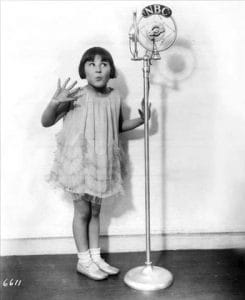Born as Rose Marie Mazzetta, her father was veteran vaudeville actor Frank Mazzetta, so it was pretty natural for Rose Marie to hit the stage almost as soon as she could walk. She started performing at age three, mostly as a singer; by five, she was a bonafide star on NBC radio with her own national show. She also appeared in numerous films, made many records, and performed with big-name stars like Milton Berle, Benny Goodman, W.C. Fields, and Rudy Vallee. As an adult, she was a nightclub star, branching out into comedy. According to music historian Joel Whitburn, Rose Marie was the last surviving entertainer to have charted a hit before World War II. She started appearing on television, and was quickly scooped up in 1961 for a regular role that she’s best known for today: as “Sally Rogers” — a staff writer on The Dick Van Dyke Show (1961-1966) with “Buddy Sorrell” (Morey Amsterdam) and “Rob Petrie” (Van Dyke) — which made her a rare role model for working women on 1960s TV. “I’ve had young girls come up to me and say, ‘It was because of you I became a writer’,” she said in 2004, when she appeared in a reunion show of the surviving Van Dyke cast members. “I worked with the guys, I made the same money — I was the first women’s libber on television.”

After the show ended, Marie was a regular on the original incarnation of the Hollywood Squares game show (from the first episode in 1966 to the last episode in 1980), and had regular and guest appearances on dozens of other shows, including The Dean Martin Show, The Doris Day Show, Cagney & Lacey, Murphy Brown, and more, all the while also appearing in live theater. Despite her spinster persona, she was married to a big-band musician in 1946; husband Bobby Guy died in 1964, and she never remarried. Rose Marie also never retired — she was a regular on the animated The Garfield Show until recently, still made appearances, and was the subject of a documentary in November 2017, Wait for Your Laugh, making her showbiz career more than 90 years long. “In between the successes of Lucille Ball and Carol Burnett,” said the New York Times’ review of the film, “Rose Marie, this movie argues, was one of the most important female comic voices in America.” Marie died on December 28 at her home in Van Nuys, Calif., at 94.
“Baby Rose Marie” singing on camera in 1929.
